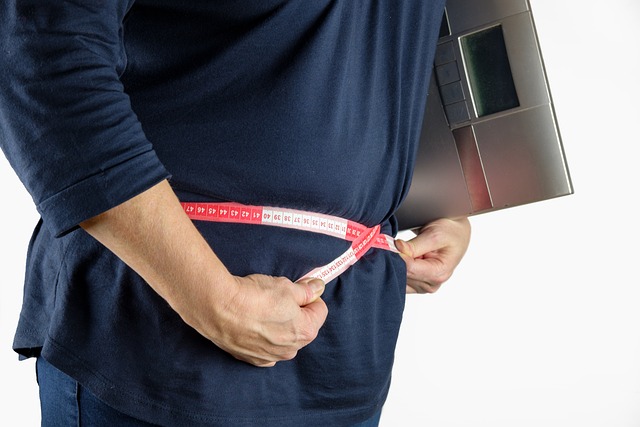Self-care habits, particularly quality sleep, are essential for physical and mental health. Consistent schedules, relaxing routines before bed, and comfortable bedrooms significantly improve sleep quality. Active recovery techniques, nutrient-rich diets, and minimizing electronic exposure also enhance sleep. This holistic approach to self-care habits optimizes rest, aiding in muscle repair, cognitive function, and stress management.
Sleep is a powerful tool for accelerating recovery and enhancing overall well-being. In today’s fast-paced world, understanding the science behind sleep optimization can transform your routine. This article delves into effective strategies to maximize rest, focusing on self-care habits that elevate sleep quality. We explore creating a peaceful sanctuary, incorporating active recovery techniques, and the role of nutrition in fostering optimal rest. Embrace these practices for a holistic approach to recovery.
- Understanding the Importance of Sleep for Recovery
- Developing Self-Care Habits to Optimize Sleep Quality
- Creating a Sleep-Conducive Environment
- Incorporating Active Recovery Techniques and Nutrition into Your Routine
Understanding the Importance of Sleep for Recovery

Sleep is an often-underestimated pillar of self-care habits, yet it plays a pivotal role in our recovery and overall well-being. During sleep, our bodies undergo various restorative processes that are essential for physical and mental health. At the cellular level, sleep triggers protein synthesis and promotes muscle repair, helping to heal and regenerate tissues. This is particularly crucial for athletes or anyone engaged in regular physical activity, as it supports muscle growth and recovery from intense workouts.
Moreover, adequate sleep is vital for cognitive function and emotional balance. It strengthens memory, improves concentration, and enhances problem-solving abilities. Sleep deprivation can lead to impaired decision-making, decreased productivity, and increased stress levels. Incorporating strategies to optimize sleep, such as maintaining a consistent sleep schedule, creating a relaxing bedtime routine, and ensuring a comfortable sleep environment, are essential self-care practices that contribute to better recovery and improved quality of life.
Developing Self-Care Habits to Optimize Sleep Quality

Developing self-care habits is a pivotal strategy in optimizing sleep quality and enhancing recovery. This includes establishing a consistent sleep schedule, creating a relaxing bedtime routine, and ensuring your bedroom environment promotes restfulness. Activities such as reading, meditation, or taking a warm bath before bed can signal to your body that it’s time to wind down. Additionally, regular exercise during the day improves sleep at night, but timing is crucial—evening workouts allow for proper cooling-down time.
Effective self-care also involves minimizing exposure to electronic devices before sleep. The blue light emitted by screens disrupts melatonin production, a hormone vital for sleep regulation. Adopting a technology curfew and keeping your bedroom screen-free creates an ideal space for restorative sleep. Furthermore, practicing mindfulness and stress management techniques during the day can significantly improve sleep quality, allowing you to wake up refreshed and ready to tackle new challenges.
Creating a Sleep-Conducive Environment

Creating a Sleep-Conducive Environment
A peaceful and relaxing sleep environment is essential for optimal recovery. Start by making your bedroom a sanctuary for rest. Keep the room cool, dark, and quiet—ideal conditions for promoting deep sleep. Invest in high-quality bedding and pillows that provide ample support, ensuring comfort throughout the night. Minimizing distractions like electronic devices and incorporating calming decor can further enhance sleep quality.
Adopting self-care habits before bed is equally vital. Establish a relaxing bedtime routine by dimming lights, practicing mindfulness or meditation, and engaging in light stretching. Avoid stimulants such as caffeine late in the day and limit exposure to bright screens for at least an hour before sleep. These practices create a soothing atmosphere, signaling to your body that it’s time to wind down and prepare for a restorative night’s rest.
Incorporating Active Recovery Techniques and Nutrition into Your Routine

Incorporating active recovery techniques and nutrition into your routine is a powerful way to enhance sleep optimization, which is a cornerstone of effective self-care habits. Engaging in low-intensity activities like yoga or light walks during rest days can aid in muscle repair and reduce physical tension, allowing for a deeper and more restorative sleep. Additionally, paying attention to your diet by incorporating anti-inflammatory foods rich in nutrients supports overall recovery and ensures your body has the necessary tools to heal and rejuvenate during sleep.
These self-care practices go hand in hand with setting a consistent sleep schedule, creating a calm bedtime routine, and optimizing your sleep environment. By combining these strategies, you create an holistic approach to sleep optimization, ensuring that your body and mind are well-restored for the challenges of the day ahead.
Optimizing sleep is a powerful tool for enhancing recovery and overall well-being. By understanding the science behind sleep’s role in recovery, adopting self-care habits to improve sleep quality, creating a relaxing environment, and integrating active recovery techniques with thoughtful nutrition, you can transform your rest time into a restorative ritual. These strategies empower individuals to take charge of their recovery process, leading to improved performance and a higher quality of life. Embrace these practices to unlock the full potential of your sleep and wake up feeling refreshed and revitalized.
